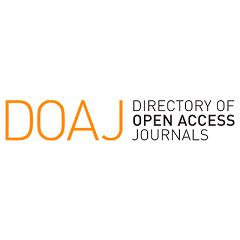EPIDEMIOLOGICAL PROFILE OF SYPHILIS ACQUIRED IN THE NORTHERN REGION OF BRAZIL FROM 2011 AND 2021
Epidemiological profile of syphilis acquired in the northern region of Brazil from 2011 and 2021
DOI:
https://doi.org/10.17695/rcsne.vol22.n2.p144-153Keywords:
Syphilis, Communicable Diseases, Public HealthAbstract
Sexually transmitted infections are among society's most recurring public health dilemmas. Syphilis is an infectious disease, exclusive to humans, transmitted through unprepared sexual contact. It is estimated that annually, 11 million new cases of syphilis occur in adults aged 15 to 49 years worldwide. The objective of the research was to identify the epidemiological profile of syphilis acquired in the states of the Northern Region of Brazil, between the years 2011 and 2021. This is an observational research, with a quantitative approach, and retrospective, with data collection from the SINAN, available on DATASUS. Sociodemographic variables were analyzed: sex, age, race, education level and diagnostic criteria. It was found that between 2011 and 2021, in the states of the Northern Region of Brazil, 50,810 cases of acquired syphilis were reported. The state of Amazonas had the highest notification rate with 18,709 (36.82%) cases, followed by the state of Pará with 13,102 (25.79%) notifications and Tocantins with 6,728 (13.24%) reported cases. The year 2018 presented the highest incidence rate of the period, decreasing from 2019. Thus, the profile of syphilis acquired in the North Region was: male individuals, aged between 20 and 39 years, mixed race, with unknown education, and in relation to the diagnostic criteria, laboratory diagnosis presented the highest rate of notifications. In this way, the need to promote actions with the aim of clarifying sexual health and offering effective measures to combat syphilis in the most affected population is evident, as well as it is essential to reevaluate the mandatory fields for filling out the notification and investigation forms of the SINAN, as they represent an essential source for determining health indicators.
Downloads
Published
How to Cite
Issue
Section
License
Copyright (c) 2024 Revista de Ciências da Saúde Nova Esperança

This work is licensed under a Creative Commons Attribution-NonCommercial 4.0 International License.
-
Declaro minha participação efetiva na elaboração do trabalho acima intitulado e torno pública minha responsabilidade por seu conteúdo. Certifico que o manuscrito representa um trabalho original e que nem este ou qualquer outro trabalho de minha autoria, em parte ou na íntegra, com conteúdo substancialmente similar, foi publicado ou enviado a outra revista, seja no formato impresso ou eletrônico; e que todos os procedimentos éticos foram tomados objetivando sua publicação.
Adicionalmente,
- Declaro que, em caso de aceitação do artigo, a Revista de Ciências da Saúde Nova Esperança, ISSN 2317-7160 passará a ter os direitos autorais a ele referentes, incluindo modificações para o melhor entendimento do conteúdo, que se tornará propriedade exclusiva da Revista, sendo liberada a reprodução total ou parcial em qualquer outro meio de divulgação, impresso ou eletrônico, desde que citada a fonte, conferindo os devidos créditos à Revista de Ciências da Saúde Nova Esperança.
- Declaro que não houve plágio e tenho conhecimento que o plágio representa um crime previsto no artigo 184 do Código Penal.
- Declaro, como autor responsável pela submissão, que nem eu e nenhum um dos autores que compõe a autoria desse manuscrito possuímos conflito (s) de interesse (s) relacionado (s) ao artigo. Que seja de natureza pessoal, comercial, política, acadêmica ou financeira.
Estou ciente que se for detectado a falsidade das declarações acima, o artigo será considerado nulo, podendo a informação de cancelamento ser de conhecimento público.

















